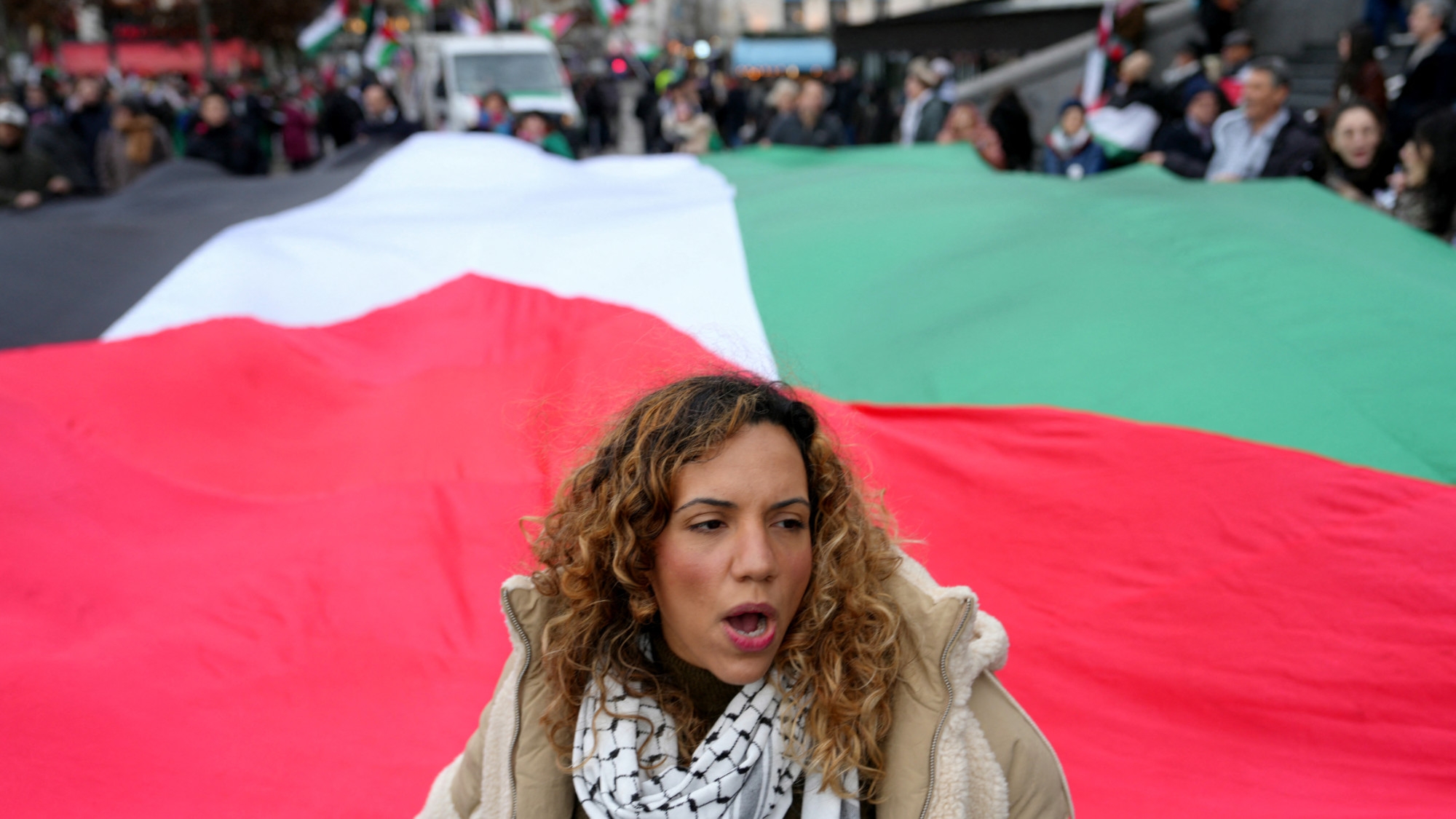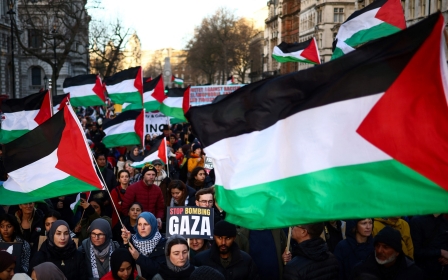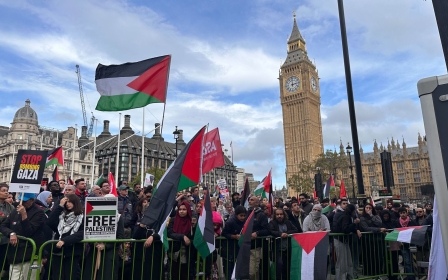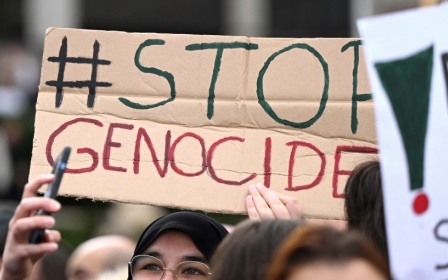War on Gaza: Activists gear up for global 'day of action' ahead of 100th day of war

Several countries across Europe, Africa, Asia and Latin America have signed up to a global day of action that will see marches take place on Saturday demanding Israel end its bloody offensive on the besieged Gaza Strip.
UK-based advocacy groups organising the initiative say the marches, which will take place on 13 January - the 99th day of Israel's offensive on Gaza - seek to mobilise people to demand a permanent ceasefire and an end to Israeli attacks on the embattled territory.
Marches are planned in dozens of cities from countries including the UK, US, Canada, France, Germany, Switzerland, Denmark, South Africa, Nigeria, Ghana, Japan, Indonesia, South Korea, Australia, Brazil, Jordan, Turkey and several others.
The Palestinian Forum in Britain, one of several British groups organising the campaign, said the growing number of cities joining the global action "reflects a shared commitment to ending the violence in Gaza".
"Together, we stand united in the #GazaGlobalAction campaign, sending a resounding message that the world demands change, justice, and a future free from violence," the forum said.
New MEE newsletter: Jerusalem Dispatch
Sign up to get the latest insights and analysis on Israel-Palestine, alongside Turkey Unpacked and other MEE newsletters
It added the "grim reality" in Gaza "underscores the urgent need for international attention, humanitarian aid, and a concerted effort towards achieving a just and lasting resolution to the conflict."
The demonstrations will take place a day before the 100th day of Israel's attacks in Gaza, which have rendered at least four percent of Gaza's population either killed, missing or wounded.
Other groups in Britain organising the protests include Friends of Al Aqsa (FOA), the Muslim Association of Britain, Stop the War Coalition, the Palestine Solidarity Campaign (PSC) and the Campaign for Nuclear Disarmament.
The groups spearheaded the anti-Iraq war protests on 15 February 2003 that took place in more than 600 cities and drew in millions of demonstrators.
Calls to join the global day of action have been shared widely on social media using the hashtags #CeasefireNow #EndTheSiege and #FreePalestine.
Ismail Patel, FOA's chair, has said the 13 January protests seek to "empower the international community to challenge Israel's allies" among other reasons.
"The global day of action hopes to highlight the worldwide condemnation of Israel’s relentless bombing and siege of Gaza, which is claiming around 300 lives daily, the ongoing ethnic cleansing in the West Bank, the discrimination against Palestinians within Israel, the dehumanising of Palestinians by Israeli leaders, and Israel’s provocative attacks targeting Syria and Lebanon," Patel said.
Ceasefire stalemate
The planned protests come amid a lack of progress in reaching a ceasefire agreement or finding international consensus to end the war.
The US, a staunch ally of Israel, has vetoed two UN Security Council resolutions since 7 October calling for a ceasefire.
Meanwhile, indirect negotiations between Hamas and Israel have hit an impasse with the Palestinian movement demanding a permanent ceasefire and Israel offering only temporary pauses.
In a last-ditch effort, South Africa in December filed a case against Israel at the International Court of Justice accusing it of genocide in its ongoing war on Gaza.
Cape Town requested the court issue an interim injunction calling on Israel to halt its military operations in the besieged enclave.
The hearing is scheduled for 11 and 12 January, a day before the planned global protests.
The war erupted on 7 October when Hamas led an assault on Israel citing the ongoing Israeli occupation, attacks on al-Aqsa Mosque and other violations.
At least 1,300 Israelis have been killed since, the majority on the first day of the attack, including at least 30 children and 300 women.
Israel then launched a bombing campaign, a ground invasion and a total siege on the Gaza Strip.
Over 23,000 Palestinians have been killed, 59,000 wounded and more than 7,000 are missing - believed to be dead and buried under rubble.
The Israeli onslaught has devastated Gaza and pushed it to the brink of humanitarian disaster, with the population facing displacement, diseases and the risk of famine.
Middle East Eye delivers independent and unrivalled coverage and analysis of the Middle East, North Africa and beyond. To learn more about republishing this content and the associated fees, please fill out this form. More about MEE can be found here.




